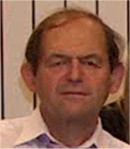
Plenary Lecture
Stochastic and Fuzzy Models in Business Applications

Professor Michael Gr. Voskoglou
School of Technological Applications
Graduate Technological Educational Institute (T. E. I.)
Patras, Greece
E-mail: voskoglou@teipat.gr
Abstract: There used to be a tradition in science and engineering of turning to probability theory when one is faced with a problem in which uncertainty plays a significant role. This transition was justified when there were no alternative tools for dealing with the uncertainty. Today this is no longer the case. Fuzzy logic, which is based on fuzzy sets theory introduced by Zadeh in 1965, provides a rich and meaningful addition to standard logic and probability theory. The applications which may be generated from or adapted to fuzzy logic are wide-ranging and provide the opportunity for modelling under conditions which are imprecisely defined, despite the concerns of classical logicians.
Concerning the probability theory, Markov chains offer ideal conditions for the study and mathematical modelling of a certain kind of phenomena depending upon random variables. The basic concepts of the corresponding theory were introduced by Markov in 1907 on coding literary texts. Since that time the Markov chain theory was developed by a number of leading mathematicians such as Kolmogorov, Feller etc, but only from the 60’s the importance of this theory to the Natural, Social and most of the other Applied Sciences has been recognized.
In this plenary lecture we shall present characteristic examples of applications of finite Markov chains to Business problems, which can be solved - as most of the problems concerning applications of Markov chains in general do - by distinguishing between two types of such chains, the ergodic and the absorbing ones. We shall also present two characteristic applications of fuzzy sets to problems of commercial enterprises. The former concerns the evaluation of the fuzzy data of a market's research, while the latter is a decision making problem in a fuzzy environment. The two types of models that we will use (stochastic and fuzzy ones) will be compared to each other by listing their advantages and disadvantages.
Brief Biography of the Speaker: Michael Gr. Voskoglou (B.Sc., M.Sc., M.Phil. , Ph.D. in Mathematics) is a Professor of Mathematical Sciences at the Graduate Technological Educational Institute (T. E. I.) of Patras, Greece. He has also taught at the Hellenic Open University, at the Mathematics Department of the University of Patras, at T. E. I. of Mesolonghi, etc. As a visiting professor he has taught in M.Sc. courses of the department of Operational Mathematics at the University of Applied Sciences in Berlin and of the School of Management at the University of Warsaw, while he worked for 3 years (1997-2000) as a post doctoral researcher in the Bulgarian Academy of Sciences in Sofia (under sabbatical).
He is the author of 8 books in Greek and English language and of more than 270 papers published in reputed journals and proceedings of conferences of 23 countries in 5 continents, with many references from other researchers.
He is also the Editor in Chief of the “International Journal of Applications of Fuzzy Sets and Artificial Intelligence” (e-journal), reviewer of the American Mathematical Society and member of the Editorial Board or referee in several mathematical journals. His research interests include Algebra, Fuzzy Sets, Markov Chains and Mathematics Education.
Relative links are he following:
Home Page URL: http://eclass.teipat.gr/eclass/courses/523102
Author Page URL: https://www.amazon.com/author/michaelvoskoglou
arXiv author identifier: http://arxiv.org/a/voskoglou_m_1